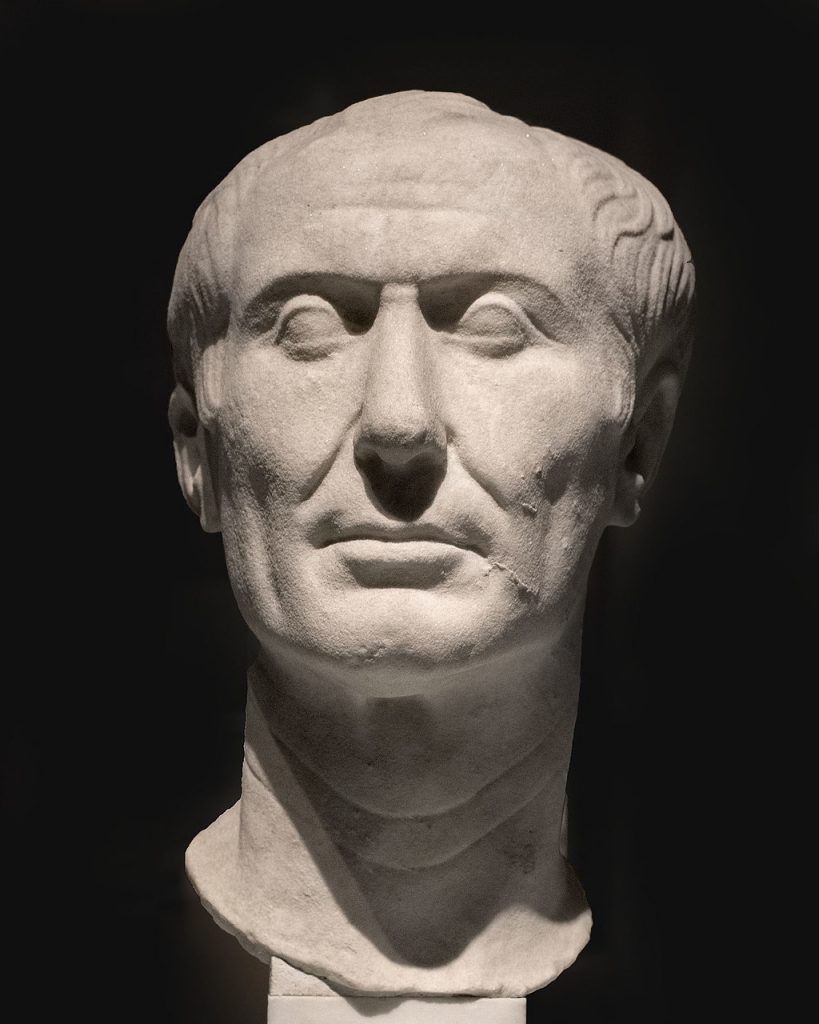
Julius Caesar was kind enough to provide us with a combination case study/marketing campaign like no other in the ancient world. His reports on his military expeditions in Gaul are great reading, great history, and one of the greatest PR moves ever. Following on from my post exploring project leadership lessons from Napoleon’s last campaign, I want to look at what team-building lessons Caesar has for us in the art of balancing core competencies and outsourcing.
Know your goal
When Julius Caesar set out in Gaul, he had clear objectives. Pompey and Crassus, Caesar’s political frenemies, were both richer and more famous than him. (Crassus even had to pay off Caesar’s creditors at one point in order for him to be able to leave Rome!) He needed cash and a reputation back home if he wanted to keep his place at the top.
Just over Rome’s border was Gaul, modern day France. It was divided into warrior nation-tribes and had lots of resources. Caesar, playing up fears of the “barbarians” from the north, intended to play divide-and-conquer in Gaul and simultaneously get rich on the plunder and get popular back in Rome.
Know your strengths
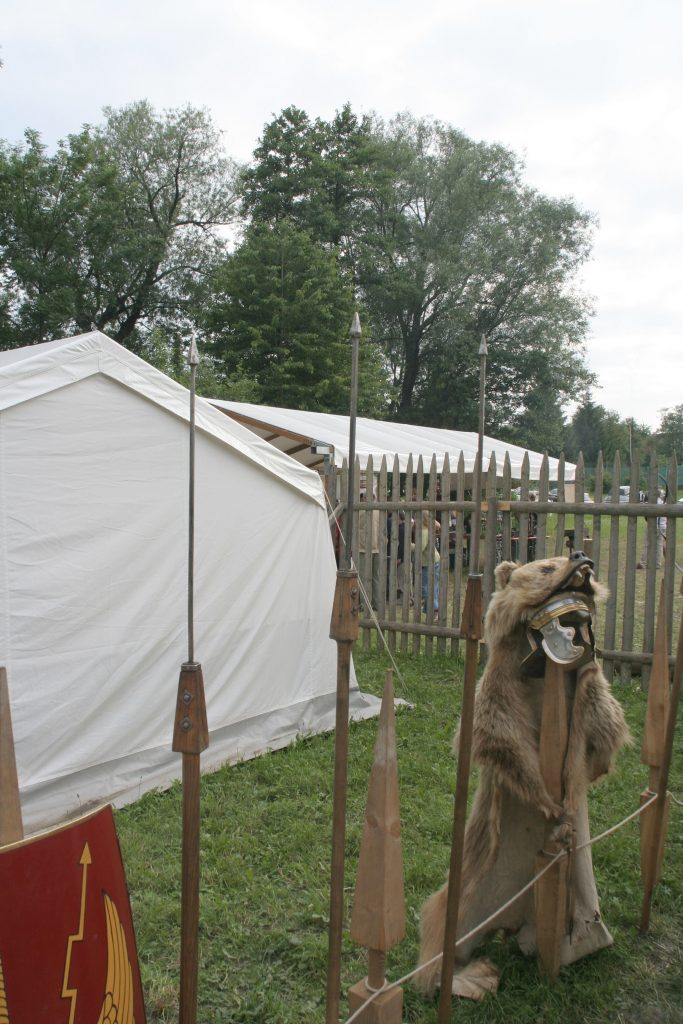
Caesar’s core team was his legions: well-trained fighting units of approximately 4000 men each. The soldiers—legionnaires—fought on foot, equipped with heavy armor, large shield, a short stabbing sword, and a heavy javelin (the pilum).
TLDR: these were the best troops in the world in a stand-up fight.
Caesar knew where his strength and core competencies were, and built his army around them. But he knew that wouldn’t be enough to achieve his goals.
Recognize your weaknesses
While Rome excelled in training heavy infantry units, there were some serious deficits. The Roman legions lacked specialists like archers and skirmishers—troops who would move ahead of the battle line to harass and confuse the enemy. In the forests and hills of Gaul, this would be a big drawback.
Even more seriously, Roman legions had very little cavalry. These troops on horseback could be used as scouts to spy out the land, guard the army from ambush, and raid the enemy. They were also the best counter to an enemy who was also on horseback.
And there were LOTS of Gauls on horseback.
Hire the experts
Training up the specialists he needed would take more time and money than Caesar had. It would also require a major change in how the legions were recruited, trained, and equipped.
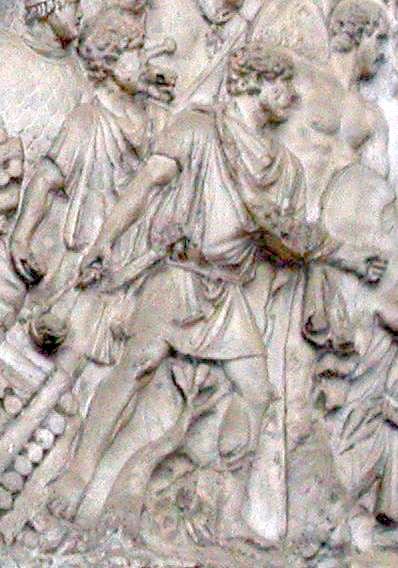
Instead, Caesar looked to expert freelancers to provide that support. Using a good network of professional contacts around the Mediterranean, he hired people with great reputations in their respective fields. Slingers from the Balearic Islands, archers from Crete, and horsemen from Numidia were recruited into his army.
Caesar paid out-of-pocket from their initial fees and offered a portion of the project’s profits (i.e. plunder!) as a completion bonus. This was far less expensive and time-consuming than training up those capabilities “in-house” and enabled him to move ahead with his campaign much faster.
Poach from your competitors
Even with the backup horsemen from Numidia, Caesar was still weaker in cavalry than his opponents. His solution was to hire people who knew the area as well as anyone: other Gauls and Germans.
Taking advantage of political divisions in Gaul, Caesar dipped into his remaining cash reserves to recruit cavalry from among the rival tribes. That was essentially a zero-sum win for him: every horseman riding for Caesar was one less riding for his enemies.
Caesar then had all the specialists he needed to support his core team in pursuing his goals.
Play to your strengths
Caesar was the epitome of “move fast and break things,” frequently moving his army farther and faster than his opponents expected. This wasn’t reckless or spontaneous action, however.
Caesar carefully planned his moves, ensuring that his team had the necessary equipment and resources weeks in the future. In an age before “just in time” delivery (or even reliable roads), this was a competitive advantage his opponents sorely lacked—and Caesar exploited.
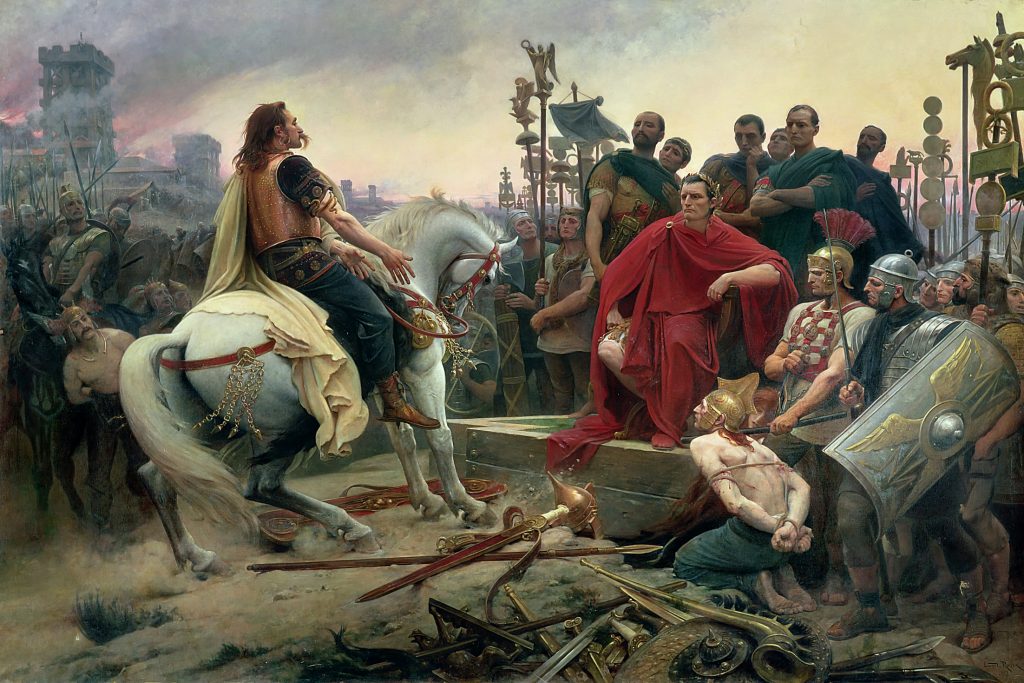
Profit
Caesar conquered all of Gaul (and even invaded Britain!), gaining both the wealth he wanted and, through his cleverly-written reports back to Rome, the reputation he desired.
You may not be planning to conquer Gaul, but Caesar provides a good model for staffing up a team for a big project.
May Fortune shine upon you in your ventures…but beware the Ides of March!
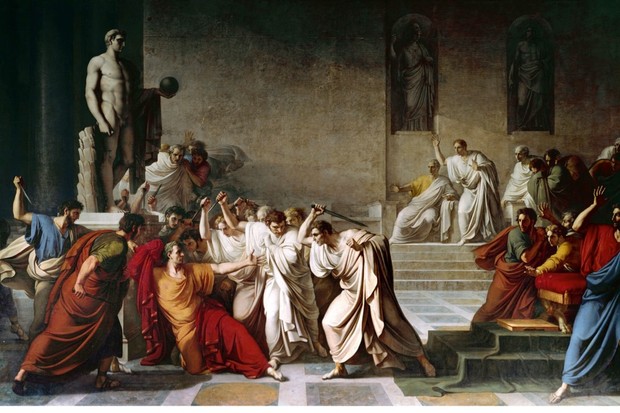
What leadership style keeps you from being assassinated by your team? Connect with me on Twitter and share your thoughts!
Stay in touch with my periodic newsletter. No spam!
Love it? Hate it? Please share it with others via the links below.